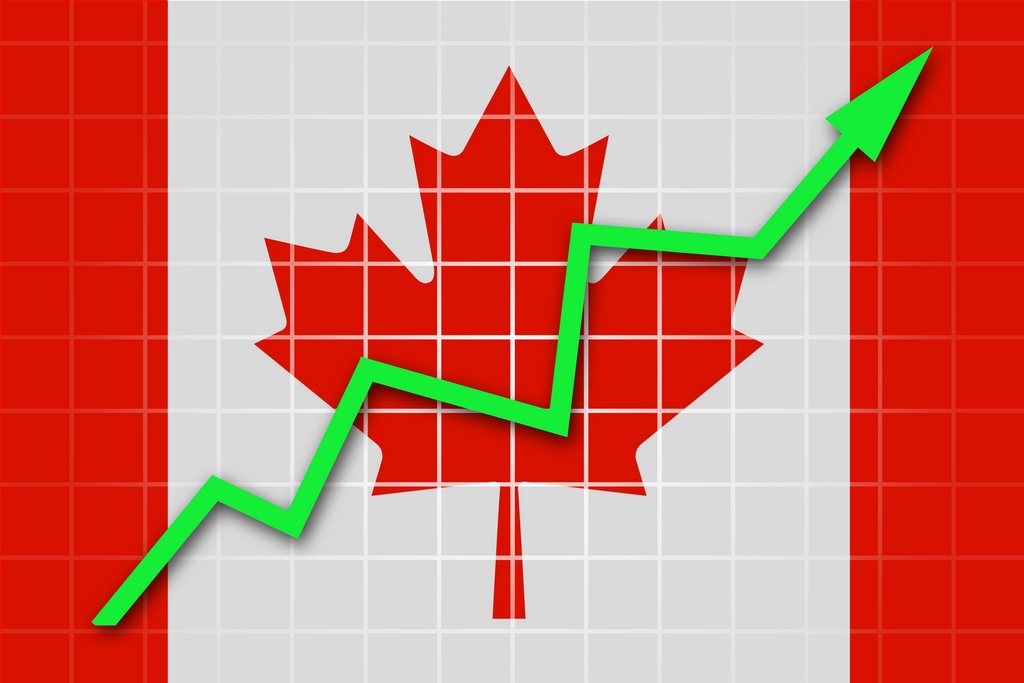
The Canadian economy has been considered well prepared for this crisis. A sound financial system, fast housing market recovery, solid social and health care networks, abundant natural resources – all these factors were supposed to make recession short and not very painful. However, the economic forecasts for the future are blurry.
We can hardly find so many different opinions on the future state of the Canadian economy, than during this autumn. While some experts have accepted our fast recovery, in the other camp the analysts points out that despite general retreat of recession in the OECD countries, our cards show we are bluffing a bit.
The Bank of Canada expected 2% growth of GDP for Q3; unfortunately August 0.1% contraction was a cold shower. Moreover, most of the industries that have been growing positively were influenced by direct stimulus action. Now, Q3 GDP is expected to be flat and it’s the Q4 which should be finally credited with introducing some growth (3.3% if you want to believe BoC forecast or 2.7% if you prefer OECD experts). As Minister Flaherty said: “I’ve been saying for some time that we need to be cautious, that the economy is recovering; the economy has not recovered.” He is not the only one to think this.
According to a new report from Reuters, despite believing the Canadian economy is resilient, private equity investors are cautious and prepared for the option of a double dip, delaying plans for initial public offerings. “I think people are planning for things to get worse,” said Steve Dent, a partner at Birch Hill Equity Partners. What’s the result for us? Buyout investments were slightly over $2.0 billion during the first three quarters, while the same period of 2008 recorded $8.5 billion.
Not only professionals, but also economists are far from optimistic. Edward Safarian, one of the most respected Canadian economists, says “This is going to be a period of no growth and false recoveries that don’t last.” Admitting the Great Recession was blunted in Canada, he is afraid that the excessive capacities built can be a long term problem. The unemployment rate may stagnate as thousands of potential unemployed, who dropped out the workforce, will be returning in the next few years. Government has a key role too, withdrawing the stimulus too hastily can bring the recession back. Consumers are following these negative opinions – the consumer confidence index dropped 5.7 points in November from October to 79, still below the pre-crisis level.
A warning from the latest report by Dale Orr Economic Insight is another important point to consider. The Canadian population grows at rate of over 1% per year, so even when GDP growth gets over the zero line, per capita product is still challenged. So with 0.4% growth in 2008 our living standards started declining even before the recession actually arrived.
Finally, currency questions should be considered too. The looney is getting stronger day by day but the situation may worsen even more, as encouraged investors around the world are dumping the safe greenbacks (once used to secure them) and are looking to grab some more adventurous currency. Our exporters will undergo more hard times…

But let’s turn over the dismal page of our analysis. Even when we consider all these peculiarities, the Canadian economy is improving and slowly overcoming the dark period, which finally wasn’t so hard for an average citizen as it was for their counterparts in the other big economies such as the USA or UK. Unemployment rates recorded an encouraging 0.3% decline in September, with the economy adding 31,000 new jobs.
The American “cash-for-clunkers” program boosted our car industry, when US car makers hit record-low inventories. Despite increased spending, our fiscal health remains a shining star amongst western countries budgets’ and a danger of excess inflation is not likely in the future.
Our banking system is strong and healthy like a young athlete, overflowing with liquidity. The housing market can hardly remember the short recession from this winter. Mining industries are profiting from commodity prices jumping up once again and demand from a still hungry China. The second biggest world economy (stuffed with billions of dollar reserves) is actively scouting for any deals related to natural resources, which resulted in several investments to Canadian companies, with the potential of more capital injections to come. Similarly, numbers of rich expatriates, who believe Canada is among the world top three destinations to enjoy life, will probably secure their pocket money in local real estate and will give some push to leisure industry.
In conclusion, the mood amongst Canadians is not as pessimistic as it may seem after reading the first part of the article. The recent CICA/RBC Business Monitor showed that optimism among executive chartered accountants is quickly rising. In Q3, 46% of them expressed optimistic expectations for the upcoming 12 months, compared to 28% in Q2 and 4% in Q1. As these guys see many businesses’ backyards, we should take their opinion seriously.
As can be seen, no facts are backing either exaggerated pessimism or optimism. Government intends to continue with the stimulus, which has already been scheduled. On the other hand there are no plans to raise new expansionary initiatives. We see indicators like interest rate, currency rate, unemployment rate, both consumers’ and professionals’ confidence are currently wilder than we were used to, so any predictions about our future have to be done more than carefully. Or you can just use a crystal ball…
I really believe that Canada has some really good future perspectives. Just 3 years ago Canadian economy was 9th largest in the world and now in 2013 it is already the 6th one. We are gradually developing. Yes, there are still lots of thing that needs to be worked out (like increasing consumer debt, for example), but in general there are lots of positive changes. We’ve got so many options here. Mortgage loans are pretty much affordable. So what else to wish for?
Thanks Monica. It will be interesting to see how long mortgage rates stay this low for.